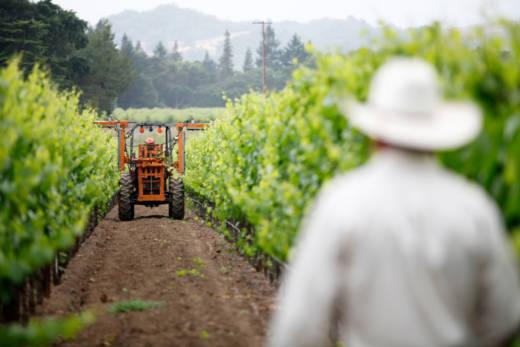On Friday, China’s Commerce Ministry announced plans to impose a 15 percent tariff on U.S. exports of wine, nut products and dried and fresh fruit in retaliation for U.S. tariffs on Chinese steel and aluminum, which the Trump administration formally began the process of initiating last week.
According to the California Farm Bureau Federation, China is the third-highest-valued destination for California agricultural products after the European Union and Canada.
One industry that stands to lose the most: California’s wineries and wine grape growers.
The U.S. sold over $180 million in wine products to China and Hong Kong in 2016, with the vast majority coming from California. If California wine becomes more expensive for Chinese consumers, the industry could be edged out of a market it worked for years to cultivate.
“Growers are very anxious about losing market share in what has been the fastest-growing market for U.S. wine exports,” said John Aguirre, president of the California Association of Winegrape Growers.
